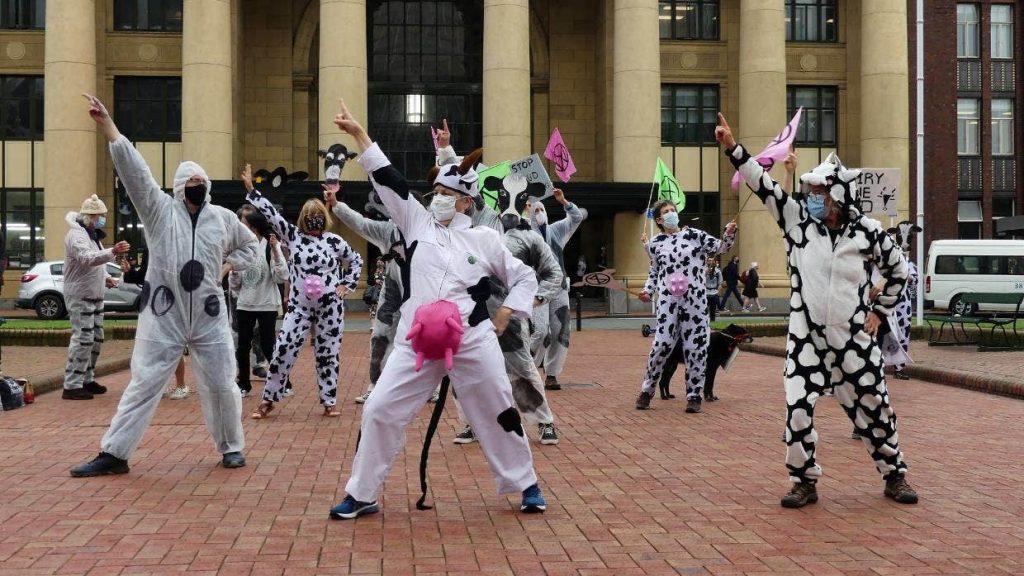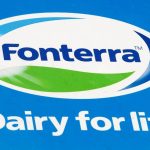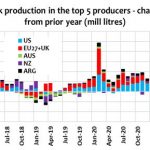
Christchurch-based psychotherapist Michael Apáthy travelled to Wellington last week for Extinction Rebellion’s week of ‘disco-bedience’, protesting the damage the dairy industry causes to the climate and environment.
It saw protesters don cow-suits and dance to Staying Alive at the Wellington Railway Station, while some glued themselves to the steps of Parliament, and others stormed dairy-cooperative Fonterra’s lobby.
Apáthy, 41, was arrested outside Fonterra’s Bowen St office and charged with wilful damage after using spray-chalk to write ‘Fonterra cows send regards’, on the ground outside the building’s entrance.
He was originally scheduled to appear in the Wellington District Court on Monday, where he planned to fight the charges, but his appearance was pushed back.
“It seems pretty ridiculous,” said Apáthy over the charges.
The spray-chalk caused no lasting damage, and had already “pretty much washed off”, he said.

Apáthy said it was “ironic” he was charged with wilful damage given the damage Fonterra’s dairy operation have done to the environment, according to him.
“If we want to talk about wilful damage, let’s talk about the rivers that we can’t swim in.”
Of particular concern in Canterbury was nitrates, he said.
Farmers use nitrate fertilisers to add nutrients to the soil, which is ingested by cows and excreted, eventually trickling into waterways.
Emerging research has found links between water-nitrate levels and human health.
“The pregnant cows forced to live in deep mud all winter long in Southland … our use of palm kernel that’s supporting rainforest destruction … because those [things] are Fonterra’s legacy.”
Apáthy said his work as a psychotherapist drove him to head north and join the protest.
“Christchurch, as we all know, has received a hell of a battering. The mental health needs there are huge.”
Apáthy said he noticed there was a lack of hope, particularly for his younger clients, and a fear they would not have a stable future.
“That lack of hope can be lethal … I’ve become really sick of seeing that impact.”
Apáthy also had deep concerns about the use of “blood phosphates” from Western Sahara in fertiliser.
Western Sahara is a disputed area, but New Zealand fertiliser companies Ravensdown and Ballance Agri-Nutrients import about $30 million worth of phosphate from there each year, which is spread on New Zealand farms.
“[It is] fuelling one of the world’s worst refugee crises, and as the son of a refugee, it does strike a chord with me personally.”
Apáthy said he wanted people to realise the impact of industrial dairy farming was not all statistics on methane and carbon.

“Under the green-washing, there’s this immense damage being done, and that damage has got very real human faces.”
A Fonterra spokesperson said the company did not own the building, and was not the one to file the charge against Apáthy.
“We did not engage with the protestors due to personal safety concerns given what they had done to the MPI office.
“We respect New Zealanders’ right to protest peacefully.”
Fonterra was making good progress on its sustainability goals, they said, with this year’s progress report publicly available.

In 2021 the company saw an 11 per cent reduction in greenhouse gas emissions from coal use on the prior year after converting its Te Awamutu plant to wood pellets, a step towards its 2037 goal to stop using the fossil fuel.
Fifty-three per cent of its farmers now have tailored farm environment plans – to better manage both animal welfare and environmental impacts like water-nitrate pollution – up from 34 per cent last year.
The company said it was on track to provide plans free-of-charge to all of its farmers by 2025.
Responsible procurement was also one of the company’s goals, and Fonterra had put plans in place to address serious issues in its supply chain, including a standard on sourcing sustainable palm products in 2016.























